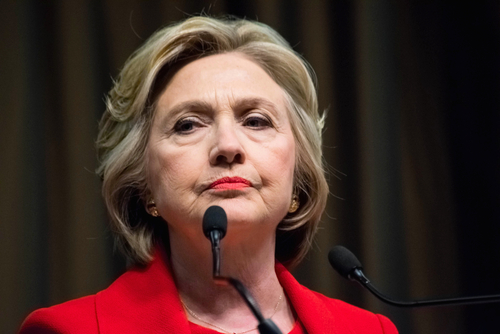
In a move that has sparked considerable conversation across social media platforms, former Secretary of State Hillary Clinton took to the digital sphere to express her dismay over the recent Oscars snub of Margot Robbie and Greta Gerwig. The absence of nominations for best director and best actress for these prominent figures in the film industry has not gone unnoticed, with Clinton’s commentary adding fuel to the ongoing debate about the Academy’s selection process.
Clinton’s reaction is indicative of a broader sentiment that permeates certain circles in Hollywood and beyond—a sentiment that often aligns with progressive stances on representation and recognition in the arts. Her engagement with the topic underscores an enduring connection to cultural conversations, even as she remains a figure primarily associated with political spheres.
Hillary Clinton is offering her support to "Barbie" director Greta Gerwig and star Margot Robbie following their Oscars snub.
"While it can sting to win the box office but not take home the gold, your millions of fans love you." https://t.co/zTFt88q5zc pic.twitter.com/HdDyQkDLzk
— CBS News (@CBSNews) January 25, 2024
The snub of Robbie and Gerwig has reignited discussions about the criteria and biases that may influence the Academy’s decisions. Critics argue that the lack of nominations for these talented women reflects a persistent undervaluing of female contributions to cinema, a critique that resonates with those who advocate for gender parity in all professional realms.
While some may view Clinton’s input as a welcome show of support for underrepresented voices in the film industry, others might interpret it as another instance of celebrity politicking. The intersection of politics and entertainment has long been a contentious issue, with debates about whether public figures should use their platforms to weigh in on such matters.
Hillary Clinton was roasted after she bizarrely tried to insert herself into the controversy over the Barbie movie not receiving Oscar nominations in key categories.https://t.co/DWBCDhjYrj
— Paul Joseph Watson (@PrisonPlanet) January 25, 2024
The Oscars controversy also brings to light the question of meritocracy in the arts. Are awards truly reflective of the highest achievements, or do they mirror a more complex web of industry politics, personal connections, and subjective tastes? This incident serves as a reminder that accolades in any field are not immune to scrutiny and that the court of public opinion often holds significant sway.
As the conversation continues, it is clear that the Oscars snub has implications beyond the immediate disappointment of fans and industry peers. It touches on broader themes of inclusivity, fairness, and the role of awards in shaping cultural legacies. Whether or not one agrees with Clinton’s stance, her involvement speaks to the enduring impact of these issues.
In the wake of this development, many will be watching closely to see how the Academy responds to the criticism and whether future nominations will reflect a shift towards greater diversity and acknowledgment of a wider range of talents. For now, the discourse surrounding the Oscars snub remains a microcosm of larger societal debates—a testament to the power of film as a medium that both reflects and influences the world in which we live.
Ultimately, the absence of Robbie and Gerwig from the list of Oscar nominees this year has catalyzed a discussion that transcends the entertainment industry. It has become a touchstone for conversations about equality, recognition, and the ever-evolving landscape of cultural appreciation. As such, it is a narrative that will likely continue to unfold in the public eye, with or without the commentary of political figures.










